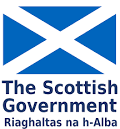PRESS RELEASE : The UK is a proud champion of the rights of members of marginalised groups and is committed to defending them – UK statement at the Security Council [June 2023]
The press release issued by the Foreign Office on 14 June 2023.
Statement by Ambassador James Kariuki at the UN Security Council meeting on tolerance and international peace and security.
Thank you President. I am grateful to the UAE for convening this important meeting and I thank the Secretary-General, as well as the briefers for their valuable briefings.
President, respect for all human rights is and must be an essential beacon for our work in this Council.
Freedom of religion or belief, including the freedom not to have a religion, is a fundamental human right.
And yet, religious minorities have time and again been specifically targeted, including in conflict. This was a key finding of the report commissioned by the former UK Foreign Secretary Jeremy Hunt from the Bishop of Truro.
From the Yezidis in Iraq, to the Rohingya in Myanmar, to the recent case of the Baha’i in Houthi-controlled areas of Yemen, minorities are too often targeted on the grounds of religion or belief. Indeed, there is evidence that religious or belief minorities may avoid seeking humanitarian aid due to fear or intolerance. Including Sunni Muslims in Syria, Shi’a Hazara communities in Afghanistan and Christian communities in Nigeria.
When communities come under attack in situations of conflict, it is the role of this Council to address it. There is more we and the UN system can do to monitor incitement to violence against all minority communities in conflict. We should assure we have the tools in place for horizon scanning to address incitement and extremist rhetoric before it tips over into violence.
Religious communities and leaders have a responsibility to reject hate and extremism in their name which can fuel violence and conflict. They can also play a unique role in conflict prevention, reconciliation, and peacebuilding initiatives, including at the grassroots level, where interreligious and intercultural dialogue can help build trust and understanding between communities, and combat intolerance.
The Archbishop of Canterbury, Justin Wellby, who sits on the Secretary-General’s Advisory Board on Mediation addressed this Council in 2018 on the role religious institutions can play in fragile states in mediation and reconciliation.
This year is the 25th anniversary of the Good Friday Agreement in Northern Ireland – a peace deal that Catholic and Protestant clergy helped deliver through mediation between adversaries. In Sierra Leone, the Inter-Religious Council was crucial to the signing of the Lomé Peace Accord which brought peace in 1999 after a decade of war. And in Mali, a country threatened by violent extremism, some Islamic figures have been working tirelessly in support of peace.
Women leaders are of course a crucial part of this: the full, equal and meaningful participation of women in conflict prevention and resolution, negotiations are more likely to succeed, and peace agreements be sustained. The Ecumenical Women Peacebuilders Network is a powerful example, a nationally recognised group of Catholic and Protestant women church leaders in Colombia who helped drive the 2016 peace accords. They now help foster reconciliation as former combatants return home. So we, as a Council, should ensure that UN peace efforts are making use of the leadership of women, religious leaders, youth and wider civil society.
President, human rights and freedom of expression must be at the heart of any attempt to advance freedom of religion and belief. Attempts to tackle intolerance will not be successful if they don’t prioritise inclusivity, equality and safeguard freedom of expression and opinion.
These principles are reflected in the resolution we have presented with our partners, the UAE, and which we hope will be adopted later today.
The UK is a proud champion of the rights of members of marginalised groups, including women and girls, and is committed to defending them.
Thank you.



